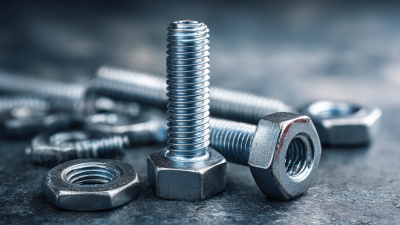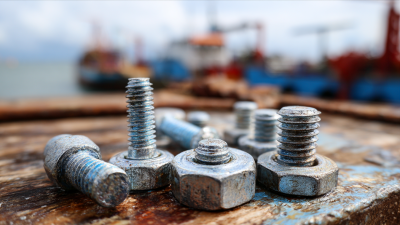Inquiry
Form loading...
In the maritime industry, safety is paramount, and selecting the right components plays a critical role in enhancing operational security. Marine fasteners, which include bolts, screws, nuts, and washers, are essential for ensuring the integrity of vessels and their structures. According to the Marine Fasteners Market Report 2022, the marine fasteners segment is projected to grow significantly, driven by increasing demand for efficiency and safety in maritime operations. In fact, implementing high-quality marine fasteners can enhance safety by as much as 35%, reducing the risk of failures that could lead to catastrophic consequences at sea. Given the harsh marine environment—characterized by saltwater corrosion, pressure variations, and extreme temperatures—choosing the appropriate marine fasteners becomes even more critical. This blog provides seven essential tips for selecting marine fasteners that not only meet industry standards but also ensure the safety and longevity of maritime operations.
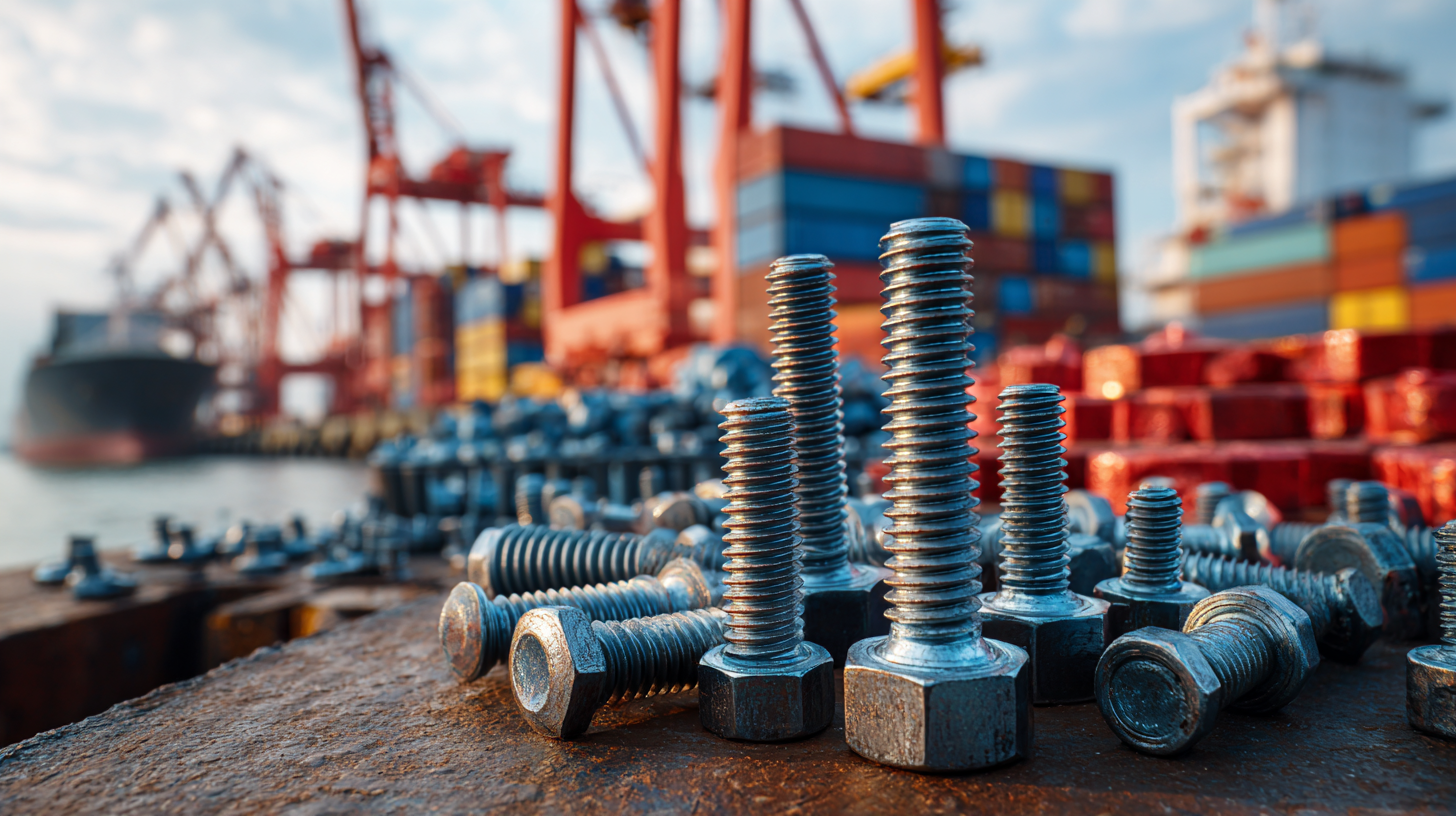
Marine fasteners play a critical role in ensuring safety during maritime operations, where the stakes are high and reliability is paramount. According to the National Institute of Standards and Technology, improperly secured components can lead to catastrophic failures, contributing to over 30% of maritime accidents. This statistic underscores the necessity of using high-quality fasteners designed specifically for marine environments, where factors like corrosion, vibration, and extreme weather conditions can compromise integrity.
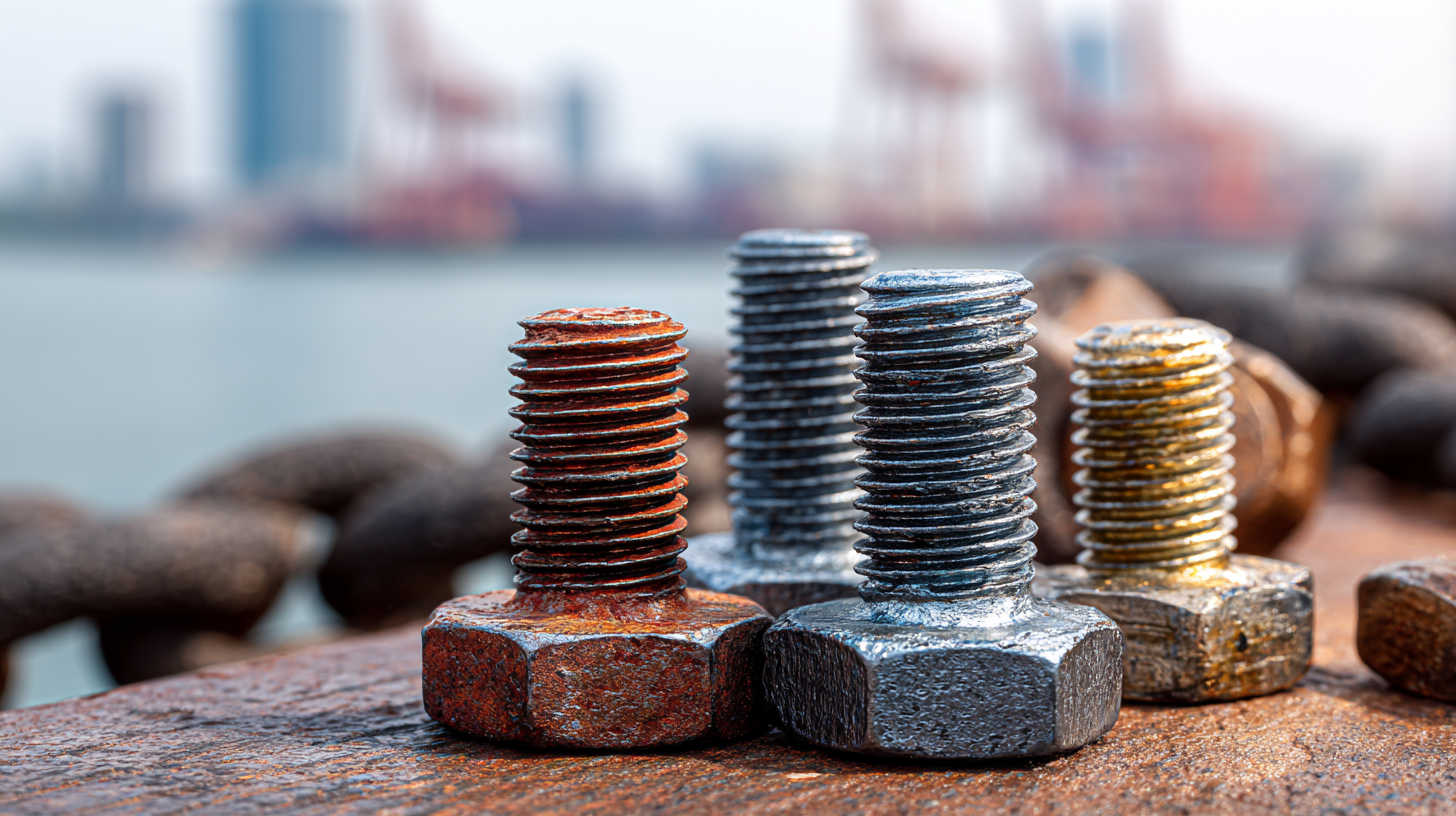
In a recent industry report by the Maritime Safety Association, it was highlighted that upgrading to certified marine fasteners can enhance operational safety by up to 35%. Fasteners engineered to meet rigorous standards not only prevent structural failures but also improve the longevity of marine vessels. Additionally, the report noted that using subpar fasteners can increase maintenance costs by over 50%, making the initial investment in quality hardware more cost-effective in the long run. As such, understanding the importance of selecting the right marine fasteners is essential for any organization looking to enhance safety and efficiency in their maritime operations.
When selecting marine fasteners, it’s crucial to understand the key types tailored for different applications within maritime operations. Marine environments present unique challenges, including exposure to saltwater and extreme temperatures, which require fasteners that are both durable and corrosion-resistant. According to a report by the Marine Fasteners Market Research Association, stainless steel fasteners, particularly those made from 316-grade steel, are essential for many maritime applications, due to their superior resistance to rust and pitting, increasing safety standards by as much as 35%.
Additionally, specialized fasteners such as lock nuts and self-tapping screws are critical for ensuring secure installations in high-stress areas of vessels. The International Maritime Organization (IMO) emphasizes that proper fastener selection directly influences the integrity of marine structures and equipment, as inadequate fasteners can lead to catastrophic failures. For instance, in offshore platforms, the usage of high-strength bolts that meet ASTM standards can significantly reduce the risk of accidents, thereby enhancing operational safety. By identifying and implementing the right types of fasteners, maritime operations can achieve higher safety standards while optimizing performance and longevity.
| Fastener Type | Material | Corrosion Resistance | Load Capacity | Typical Applications |
|---|---|---|---|---|
| Bolts | Stainless Steel | High | Up to 10,000 lbs | Deck Fixtures, Hull Attachments |
| Nuts | Brass | Medium | 5,000 lbs | General Fastening |
| Washers | Aluminum | High | Varies | Distribution of Load, Preventing Loosening |
| Screws | Marine Grade Stainless Steel | High | Up to 3,000 lbs | Wood and Metal Fastening |
| Rivets | Aluminum | Medium | Varies | Sheet Metal, Structural Applications |
When it comes to maritime operations, selecting the right marine fasteners is crucial not only for structural integrity but also for ensuring safety at sea. One of the primary considerations should be the material durability of fasteners, as these components are constantly exposed to harsh environmental conditions. Marine environments often present challenges such as saltwater exposure, extreme temperatures, and high humidity, which can significantly affect the lifespan and performance of fasteners. Therefore, materials such as stainless steel, titanium, and specialized coatings can enhance the durability of marine fasteners, providing a reliable option for boat builders and operators alike.
Corrosion resistance is another essential factor when evaluating marine fasteners. Corrosion can weaken fasteners and lead to catastrophic failures, making it imperative to choose materials that can withstand prolonged exposure to corrosive elements. Fasteners that are specifically designed for marine applications often come with protective finishes or are made from alloys that resist rust and degradation. By investing in high-quality, corrosion-resistant fasteners, maritime operations can enhance safety, reduce maintenance costs, and ensure the longevity of their vessels, ultimately contributing to a more efficient and secure maritime industry.
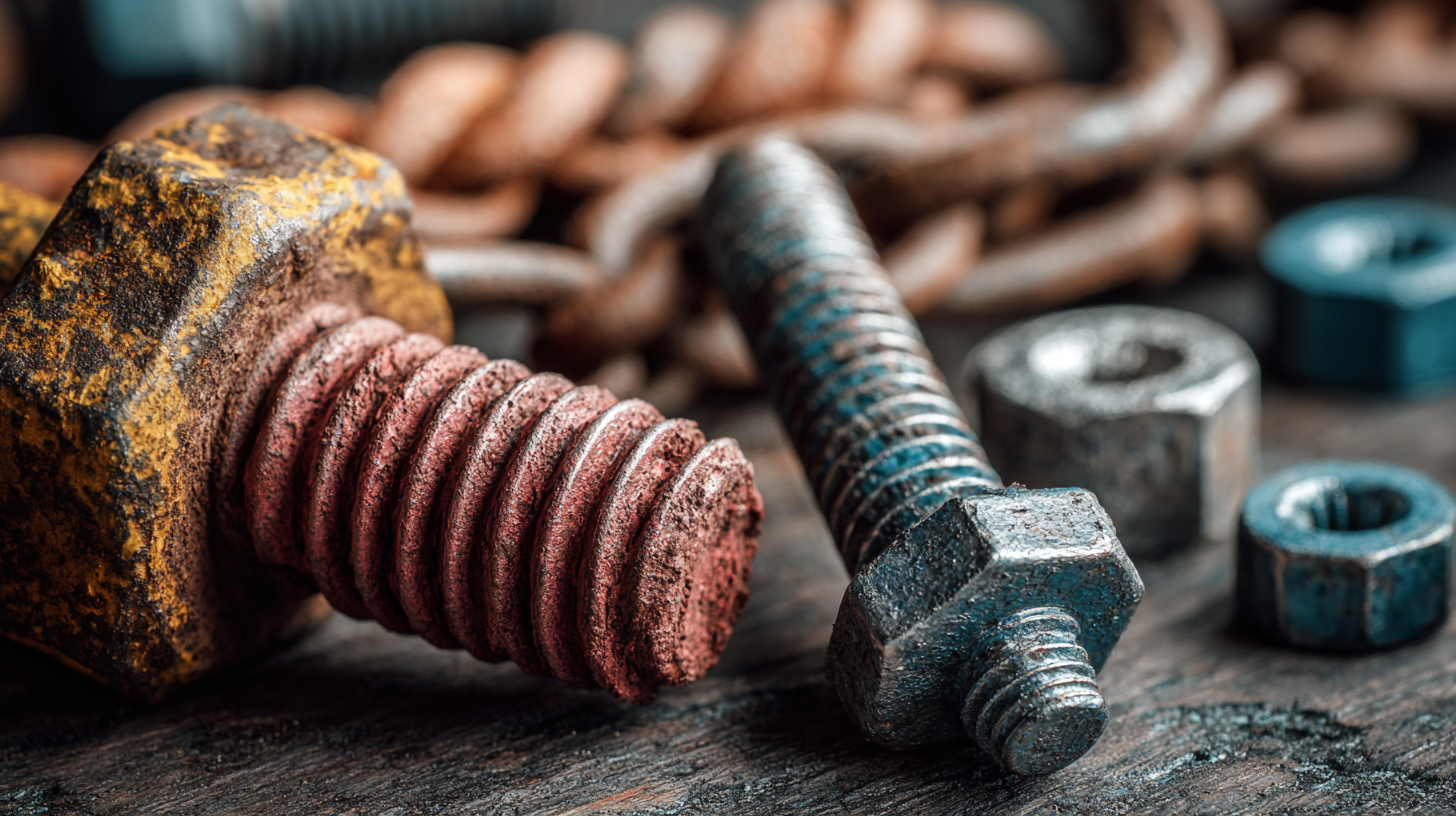
When selecting marine fasteners, adherence to industry standards and certifications is paramount. These benchmarks ensure that the fasteners can withstand the harsh conditions of maritime environments, where exposure to
saltwater, humidity, and significant stresses are commonplace. Fasteners that comply with recognized standards, such as ASTM, ISO, or SAE, are designed to meet specific performance criteria. This not only enhances the reliability of the components but also assures users of their safety and durability.
Incorporating certified fasteners into maritime operations can significantly minimize risks associated with equipment failure and safety incidents. For instance, fasteners that are tested for corrosion resistance and tensile strength provide an added layer of assurance.
Moreover, selecting fasteners that adhere to industry standards can improve maintenance protocols, as these components are often easier to inspect and replace. Ultimately, prioritizing standards and certification in fastener selection is a critical step towards enhancing safety by an estimated
35%, fostering a culture of responsibility and trust within maritime operations.
Regular maintenance and inspection of marine fasteners are crucial for ensuring the safety and reliability of maritime operations. Over time, exposure to harsh marine environments can lead to corrosion, wear, or fatigue in fasteners, potentially compromising the structural integrity of vessels. Therefore, implementing a routine inspection schedule is essential. Operators should systematically check for signs of corrosion, thread deformation, and other damage that could affect performance. Utilizing specialized tools for measuring torque and tension during inspections can help ascertain that fasteners are within acceptable limits.
In addition to routine checks, proactive maintenance practices can significantly extend the lifespan of marine fasteners. Applying appropriate anti-corrosion coatings, using sealants, and ensuring that fasteners are tightened to manufacturer specifications can prevent issues before they arise. Furthermore, educating crew members on the importance of fasteners and providing training in best practices can enhance overall safety. By prioritizing the maintenance and inspection of marine fasteners, maritime operators can enhance safety and efficiency, safeguarding both personnel and assets against the risks inherent in marine operations.
